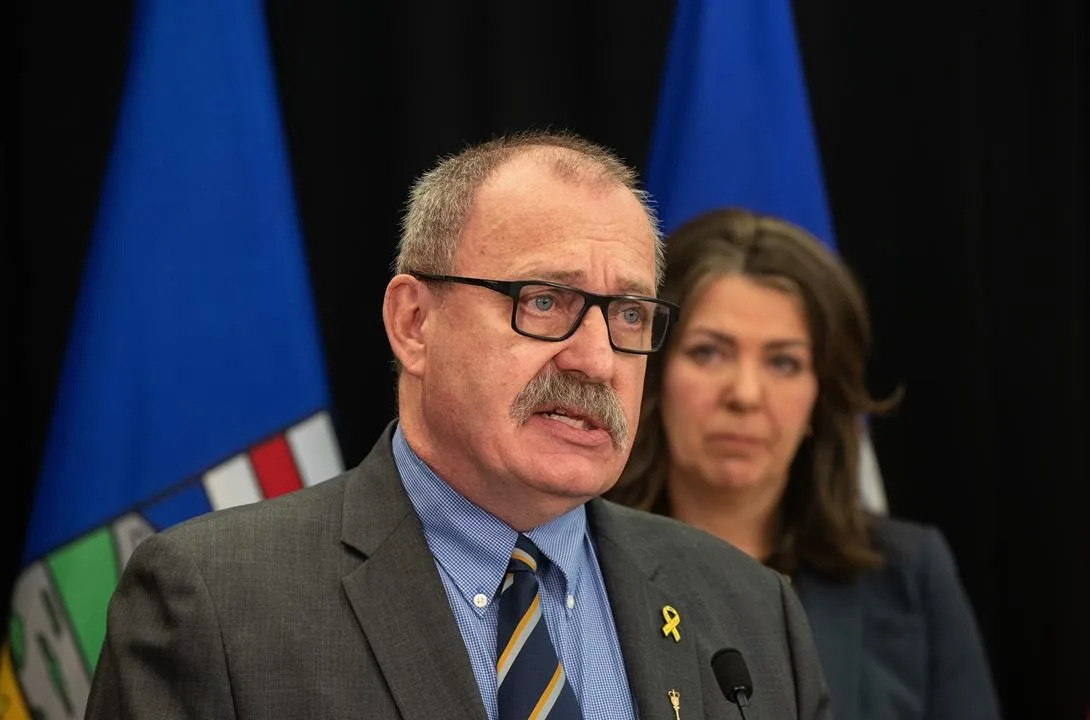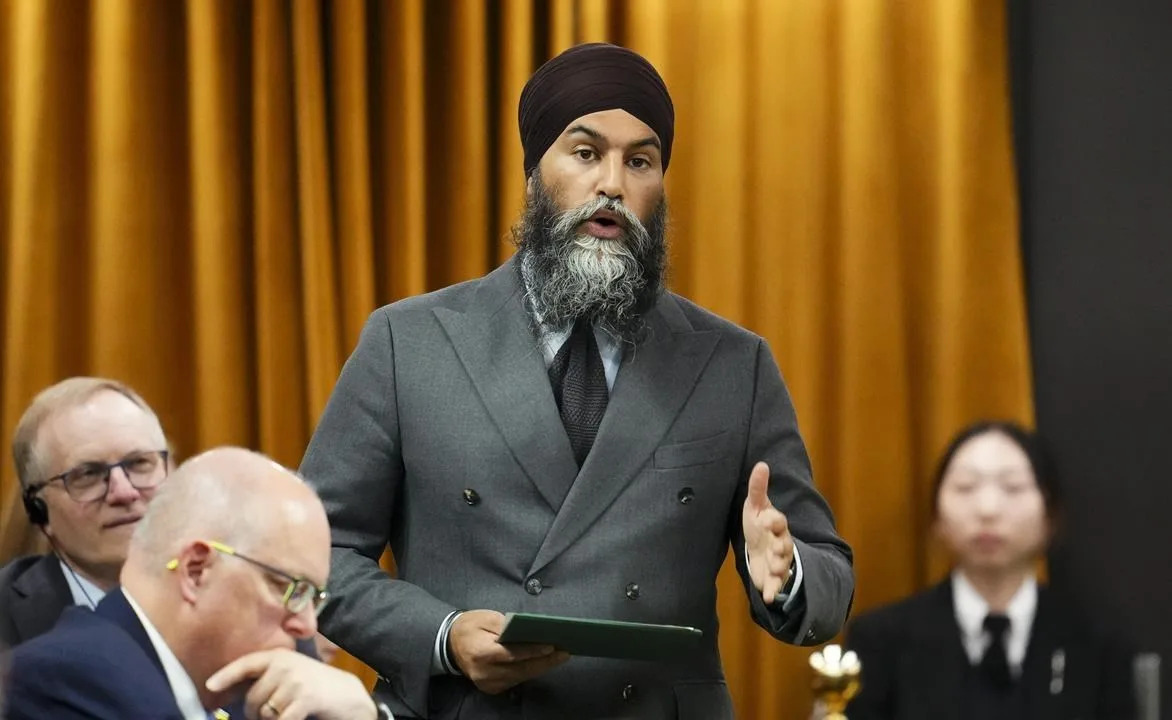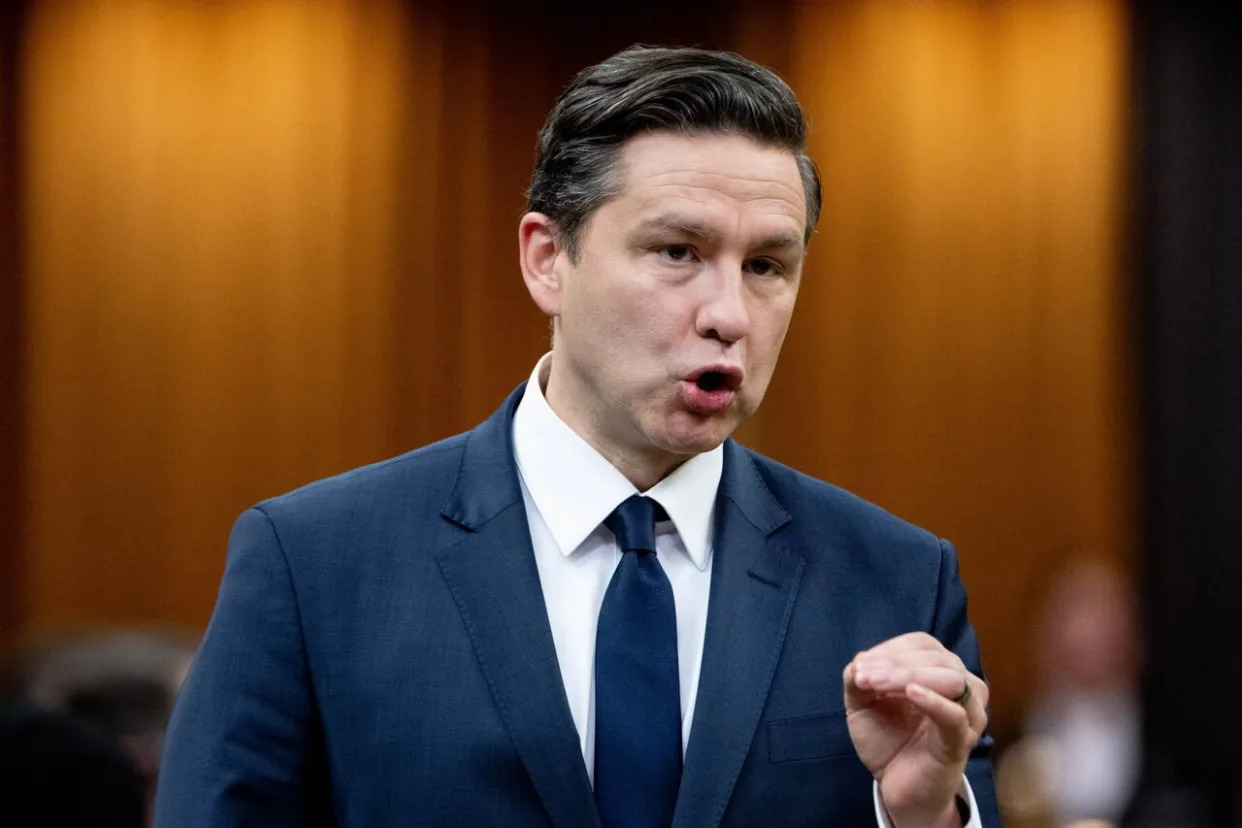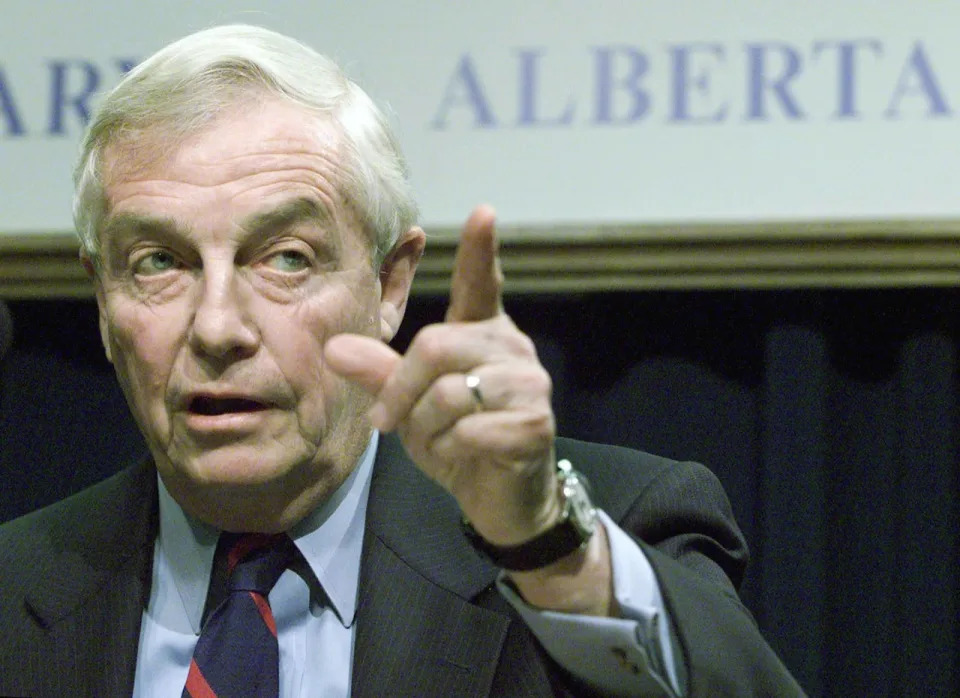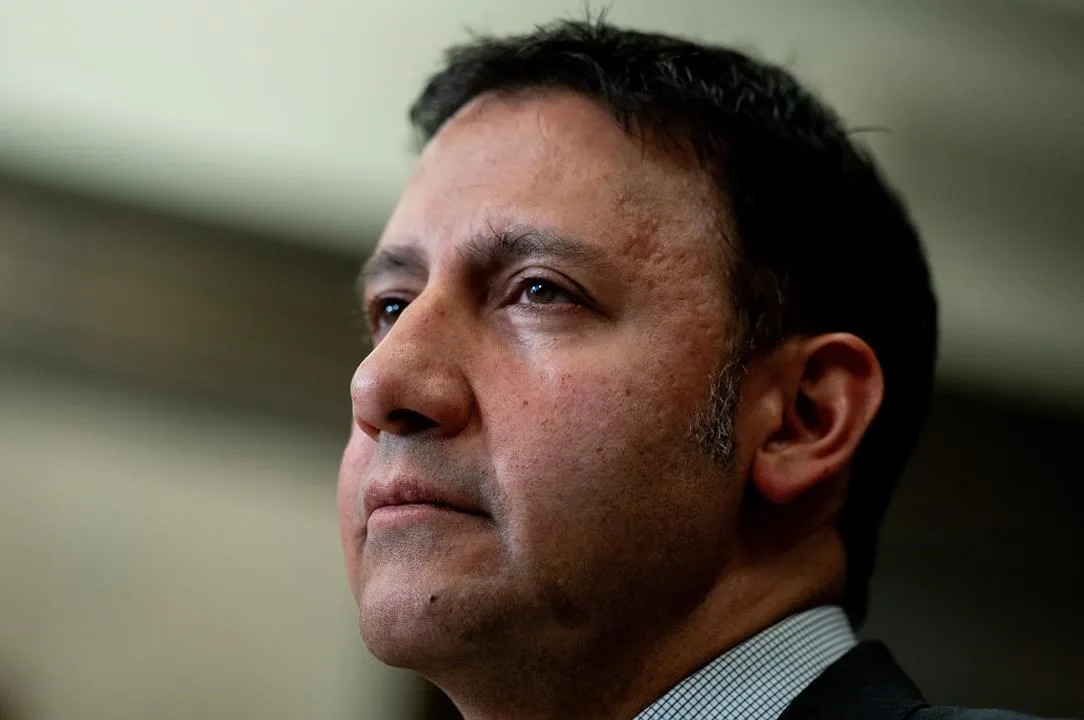Another public consultation? Skepticism grows as Alberta launches survey on auto insurance
CBCMon, May 6, 2024

The provincial government is asking Albertans for their input on the future of auto insurance in the province as it prepares for long-term changes. (Jeff McIntosh/The Canadian Press - image credit)
After months of pointing at big changes to come, the province says legislation to reform Alberta's auto insurance system could be coming this fall.
In a mandate letter last July, Premier Danielle Smith tasked Minister of Affordability and Utilities Nathan Neudorf with providing short- and long-term recommendations to make car insurance more affordable.
Four months later, in a press conference, Smith rolled out some short-term plans, including the introduction of a 3.7 per cent rate hike cap on insurance for "good drivers." She also promised long-term reforms were coming in the next year.
"The cost-of-living crisis isn't over just yet. We're looking at all possibilities to provide relief, and auto insurance is next on our list," Smith said in November, a month before the rate freeze was lifted.
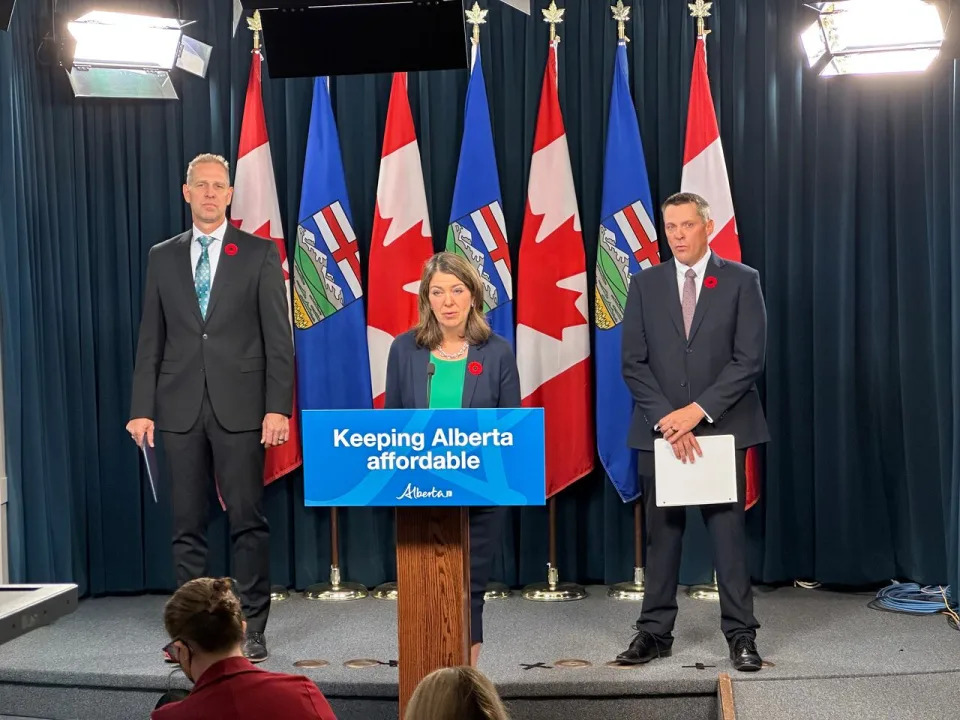
Alberta Premier Danielle Smith, centre, announces short- and long-term plans to reform auto insurance in Alberta at the legislature on Nov. 1, 2023. She is flanked on the left by Affordability and Utilities Minister Nathan Neudorf and Finance Minister Nate Horner, right.
Alberta Premier Danielle Smith, centre, announced short- and long-term plans to reform auto insurance in Alberta at the legislature on Nov. 1, 2023. She is flanked on the left by Affordability and Utilities Minister Nathan Neudorf and Finance Minister Nate Horner, on the right. (Dave Bajer/CBC)
The government has been quiet on the auto insurance front since then — until last week, when it asked Albertans to join the conversation by filling out an online survey, which is open until June 26.
In the same breath, it released two long-awaited studies it commissioned on the feasibility of adopting different insurance models in Alberta and the economic impacts of those systems.
So what will this public consultation accomplish, as Alberta drivers wrestle with the second-highest insurance premiums in the country, behind Ontario?
"We are asking Albertans what changes, if any, they want us to make to the system to achieve long-term relief rather than short-term measures," said Justin Brattinga press secretary for Treasury Board and Finance Minister Nate Horner, in an emailed statement.
"No decisions on auto insurance reform have been made," he said.
An official with the Insurance Bureau of Canada says this public consultation goes further than knowing whether Albertans want cheaper insurance; it's about gauging what balance drivers want with their coverage.
But some Albertans are doubtful their feedback will be taken into consideration — a skepticism a political analyst says is warranted, given the UCP government's history of hearing one thing during public consultations and doing another.
'They don't listen'
On Monday, Horner told CBC News that roughly 4,600 Albertans have filled out the survey so far.
"All the stakeholders that are intimately involved in the system — whether it be industry, business, injury lawyers — they all have a lot of vehicles to speak to government. So we just wanted to make sure there was something where Albertans could reach out and make sure their feelings and thoughts were heard and understood," said Horner.
Mount Royal University policy studies associate professor Lori Williams says it makes sense for the province to check in with Albertans on a topic that affects them.
But she says the government is likely to face a major problem: some Albertans are very skeptical about public consultations.
"Because despite the fact that 70 per cent of Albertans do not want political parties in municipal elections, they have proceeded with legislation to accomplish exactly that, at least in two municipalities in Alberta. And despite repeated polling and consultations that Albertans do not want a provincial pension plan, they've continued to pursue that," said Williams.

Edmontonian Yolanda Engel says despite having strong opinions about auto insurance, she won't bother filling out the survey.
Edmontonian Yolanda Engel says despite having strong opinions about auto insurance, she won't bother filling out the survey. (Submitted by Yolanda Engel)
"A government that has claimed to consult with Albertans and to listen to Albertans has repeatedly failed to do that and actually take an action that's in direct opposition to what Albertans have clearly indicated."
Edmontonian Yolanda Engel is one of those skeptics. She strongly opposes no-fault insurance — she wants the ability to sue if she gets seriously hurt in an accident.
But even though the province has previously said that's one of the systems it's considering, Engel says she doesn't see any point in filling out the survey.
"To me, it's just falling on deaf ears.… They don't listen to anyone's remarks, no matter who is giving their opinion," said Engel.
She says she's been burned in the past with the province's surveys. She was among many others who spoke out against the province's curriculum changes, only to see them go ahead with them anyway.
"They can do whatever they want even though nobody else wants what they're testing, so it's very frustrating."
Balanced coverage
The bulk of the survey asks Albertans about their thoughts on the province's five core principles guiding this reform: affordability, stability, simplicity, care focused and accountability.
It also asks other questions, like if you've been injured in a vehicle accident in the past five years and if you trust your insurer to support you properly if you get hurt.
Aaron Sutherland with the Insurance Bureau of Canada says this consultation is all about which pieces of the insurance puzzle Albertans value most.
"Everybody wants more affordable auto insurance, but coverage counts," said Sutherland.
"This consultation really looks at what is the balance that the drivers in Alberta want to see between affordability, between maintaining and increasing level of care, but also your ability to sue and your ability to hold at-fault drivers responsible for collisions."

Vehicles are pictured driving in traffic along highway 1 in Burnaby, British Columbia on Wednesday, December 8, 2021.
The insurance industry and experts say there are many attributes needed for a healthy insurance marketplace, and it's all about balancing (Ben Nelms/CBC)
Martin Halek, associate professor of risk management and insurance at the University of Calgary's Haskayne School of Business, says it's important Alberta drivers know it isn't possible to check all of those boxes — there are trade-offs required.
"If nothing else, the survey serves as a refresher course that insurance doesn't work in a box where the lowest premium wins kind of thing. That's probably a good thing," said Halek.
"How is it going to be analyzed? Will it be used to make better regulatory decisions? That's a little bit to-be-determined."
He says public education is key in this process and he's keeping an eye on how far the province will consider no-fault insurance.
Alternative models explored
The long-awaited reports, released at the same time as the survey, give Albertans an insight into what options are on the table for the province as it looks at changes.
The commissioned studies, completed by actuarial consultant Oliver Wyman and management consultancy Nous Group, looked at seven insurance models in various provinces and in Australia, as well as the Insurance Bureau of Canada's proposed model.
In essence, it explores public, private and hybrid systems of insurance.
Wyman's analysis suggests Alberta drivers could see the most savings with their premiums if the province switches to a public insurance model like British Columbia, which has a no-fault, public insurance Crown corporation.
It says a hybrid system like Quebec's, where bodily injury is covered by a public insurer but vehicle damage is covered by private insurance companies, could also result in savings.
Meanwhile, Nous Group, which was tasked to look at economic impacts of the systems, concluded that switching to a public model would take up to two years and come with a price tag of nearly $3 billion.
Instead, it says maintaining a private system could have the least economic impacts.
The Insurance Bureau of Canada — which represents insurance companies — has publicly raised concerns about Wyman's calculations, which suggested its proposal could come with some cost savings but not as much as other options.
The bureau has been proposing a system similar to New Jersey's, where drivers have more choice about type of coverage, ability to sue and, in turn, how much they pay.
One thing the bureau and consultant can agree on? Tackling legal costs could make a big difference with Albertans' premiums.
As the province weighs its many options and it prepares to introduce legislation, the insurance industry, political watchers and citizens say they're keeping a close eye on how much Albertans' voices matter in the process.

